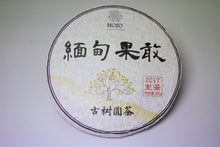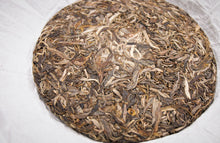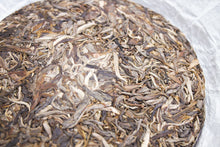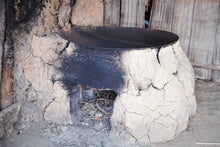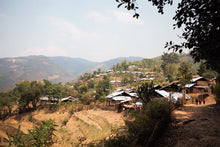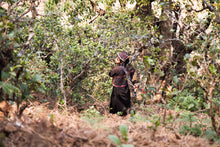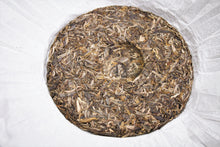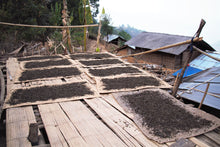
Tea was collected in Myanmar near the Yunnan border
In Myanmar, Guo Gan is located next to the South West Yunnan. The population of Guo Gan consists of a number of Chinese minorities. In the town of Guo Gan, many people speak Chinese and many sign boards are written in Chinese. The Guo Gan autonomous region has very strong economic linkage with Yunnan. In particular, pu-erh tea is a very important trading item for them. In the history, there were always civil wars taking place in Guo Gan due to the conflicts between different tribes. In the past few years, they have had very severe fights. In 2016, they have temporarily ceased the war, although a number of conflict zones are still remained. 
The village of Myanmar that is just a few houses away from the national border to China. In 2013, we visited there before the civil war begun.








